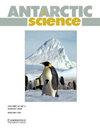1年南极考察中探险者人格测量的变化
IF 2
4区 地球科学
Q3 ENVIRONMENTAL SCIENCES
引用次数: 1
摘要
南极考察站极端的工作和生活条件使探险者产生了许多心理变化。然而,关于探险者人格特征变化的研究几乎没有。因此,本研究旨在确定1年南极考察中探险者人格测量的变化。这项研究调查了在乌克兰南极维尔纳德斯基科考站工作的56名探险者(52名男性,4名女性;年龄20 ~ 63岁,M = 38.12, SD = 10.01), 2016 ~ 2021年参加5次年度考察。本研究采用了乌克兰版的四种测量方法:Thomas-Kilmann冲突模式量表、Eysenck人格问卷、Leonhard-Schmieschek问卷和Leary人际关系清单。在1年的南极考察中,考察者人格测量的26项指标中有8项发生显著变化(P < 0.001-0.1)。这些指标属于研究中使用的四项措施中的三项,并被评估为个人不利。它们包括精神病和竞争型、管理型专制型、攻击性虐待型、负责型超常型、竞争型自恋型和自我隐忍型受虐型以及适应型的减少。在此基础上,提出了进一步研究的前景,以改善南极考察人员的心理选择、培训和工作。本文章由计算机程序翻译,如有差异,请以英文原文为准。
Changes in expeditioners' personality measures during 1 year Antarctic expeditions
Abstract The extreme working and living conditions at Antarctic stations cause numerous psychological changes in expeditioners. However, research on the changes in expeditioners' personality traits is virtually non-existent. Therefore, the present study aims to determine the changes in expeditioners' personality measures during 1 year Antarctic expeditions. This study examined 56 expeditioners working at the Ukrainian Antarctic Akademik Vernadsky station (52 men, 4 women; ages 20–63 years, M = 38.12, SD = 10.01) who participated in five annual expeditions between 2016 and 2021. The Ukrainian adaptations of four measures were used: the Thomas-Kilmann Conflict Mode Instrument, the Eysenck Personality Questionnaire, the Leonhard-Schmieschek Questionnaire and the Leary Interpersonal Checklist. During 1 year Antarctic expeditions, 8 of the 26 indicators used to describe expeditioners' personality measures changed significantly (P < 0.001–0.1). These indicators belonged to three of the four measures used in the study and were assessed as personally unfavourable. They included increased psychoticism and competing, managerial-autocratic, aggressive-sadistic, responsible-hypernormal, competitive-narcissistic and self-effacing-masochistic styles and a decreased accommodating style. Based on these results, promising areas for further research that could improve psychological selection, training and work for Antarctic expedition personnel are outlined.
求助全文
通过发布文献求助,成功后即可免费获取论文全文。
去求助
来源期刊

Antarctic Science
地学-地球科学综合
CiteScore
3.60
自引率
6.20%
发文量
42
审稿时长
3 months
期刊介绍:
Antarctic Science provides a truly international forum for the broad spread of studies that increasingly characterise scientific research in the Antarctic. Whilst emphasising interdisciplinary work, the journal publishes papers from environmental management to biodiversity, from volcanoes to icebergs, and from oceanography to the upper atmosphere. No other journal covers such a wide range of Antarctic scientific studies. The journal attracts papers from all countries currently undertaking Antarctic research. It publishes both review and data papers with no limits on length, two-page short notes on technical developments and recent discoveries, and book reviews. These, together with an editorial discussing broader aspects of science, provide a rich and varied mixture of items to interest researchers in all areas of science. There are no page charges, or charges for colour, to authors publishing in the Journal. One issue each year is normally devoted to a specific theme or papers from a major meeting.
 求助内容:
求助内容: 应助结果提醒方式:
应助结果提醒方式:


